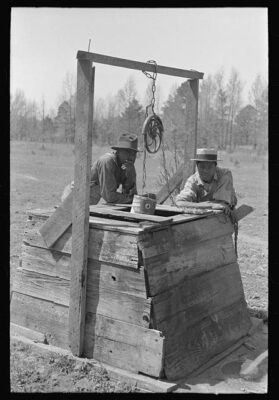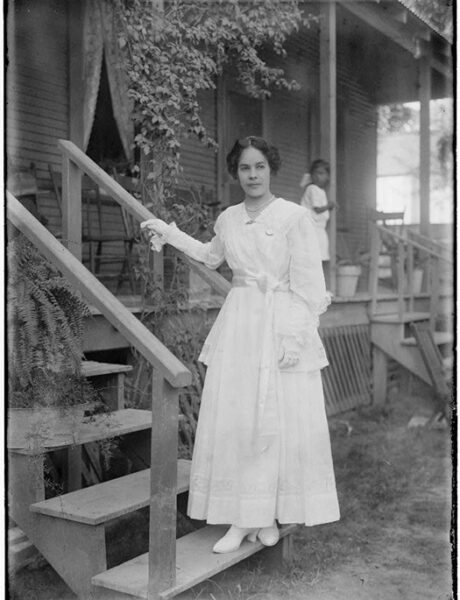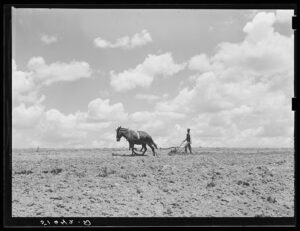Bird
Joe’s voice is like a bird’s—his first remark
or laugh can crack the air like lightning through
a tree trunk, splitting it to slivers as
you snap your head around to find the sound.
And then his other words will follow, rise
and fall in intonations growing slow
and thick like old Virginia Creeper, but
melodic like a warbler, sentences
in short and calculated series ’til
his song and point are made and then he stops
and then you wonder if you heard the sound
at all because you keep on hearing when
it’s gone.
I drink his dialect when it grows cold
in Shenandoah County and he tells
me of his gun-shy foxhound, King, that years
ago his pa had shot atop the ridge
when he discovered King would never bound
to him with bloodied duck or squirrel in mouth;
instead the pup would dash off desperately,
attempting to escape the startling boom
of buckshot blast. A hunt dog hunts; it’s not
his place to run.
You couldn’t find two folks more different, two
whose lives have less in common, but I take
each word he offers me like coins or stamps
for a collection, building over time
to form an archive that could fills the halls
of the Smithsonian. There’s no one else
for him to pass them to, and all those words
will likely hover in my mouth and let
my tongue encircle them and change its shape
to match their drawl, and they will likely stay
there. Who on earth would I then pass them to?
But I can take them out from time to time
and polish them and marvel at them, put
them back away again for only me
to taste.
I would have liked to meet his pa. I draw
sharp pictures of the man I’ll never see,
whose life’s related over growing fires
we light each evening, both of us outside
and sipping on cigar smoke, drinking up
the heat that rises from the applejack
that sits inside the metal belly of
a thermos cap.
There’s something I can’t shake about the man
who climbed a hundred feet from branch to branch
without a glance back down the trunk. He’d scale
the tree to steal the baby crows from out
their nests and tie their feet together, whip
them all in three quick strokes. ’Cause crows can count
and three means babies are in trouble, so
the crows would rise from out the cornfields they
were ravaging, and he could shoot no less
than thirty-two of them. But who, upon
the sight he witnessed of his two young boys
commit a murder, slinging rocks that sailed
way upwards into sky then crushed a song-
bird’s head,
walked up to them, his visage calm and crisp
and haloed by the sinking sky behind
him, and then shot out, “Boy, you gimme that,”
and guarded “that” ’til dinner. Something in
his gait as he then rose from up the chair
he sat in at the table, grasped the sling-
shot—hours of boyhood labor over tire
and leather—and, in one swift move, released
it into flames inside the stove because
you never shoot a songbird, that, now close
to seven decades later, makes his son’s
voice echo slightly with the treble of
the one he killed.
**
To the Coyote on the Side of the Interstate
The valley aches because it stretches,
every day, from when the first damp breath
starts breaking through the filmy light that’s pancaked
on its follicles, and trembling stalks
start running on that exhalation, reach
and run until they burn and blacken in
the end because they realize that there’s nowhere
else but fields to run for miles and miles.
And there you are, your skin splayed out across
the valley’s asphalt scar, the road a stage
on which what must have been a wild ballet
is frozen, limbs stuck reaching desperately
to touch each corner of the earth at once.
It seems that someone tried to weave your body
all across the plain, to cut you right on down
your torso and unravel you like ribbon,
boundless, separated from your spool.
Your face, intact, looks miniscule against
your eighteen feet of large intestine,
football fields of skin. The rest of you
resembles something massive—antelope,
or elephant, but never anything
that would succumb to domination by
a balding tire brigade.
And yet, you weren’t
always like that, were you? I can tell,
just yesterday you had a body tightly
molded, all your joints like springs, your eyes
wide open as your head would hover just
one note above the water. You were small
enough to plunge your sucker-punching hot
crescendo down without a splash, your head
submerged, a rock amidst the water rushed
downstream in whitecaps past your head to die.
And you would drink before the larger waters
snaking through the midlands to the coast
would swallow it and it would fade out, perfect,
syncopated, just as it was made
to, into the Atlantic’s closing notes.
And then one day the world is left to find
you: lying there in such bizarre attire,
appearing as you never did in life,
your body baking in the Mighty Oven
of the South, atop a patch of grass
eleven miles from C.J.’s BBQ.
I guess the rest of us could not have known
what aching brought you to the road, how deep
it ran, how far the whole of you could stretch.







